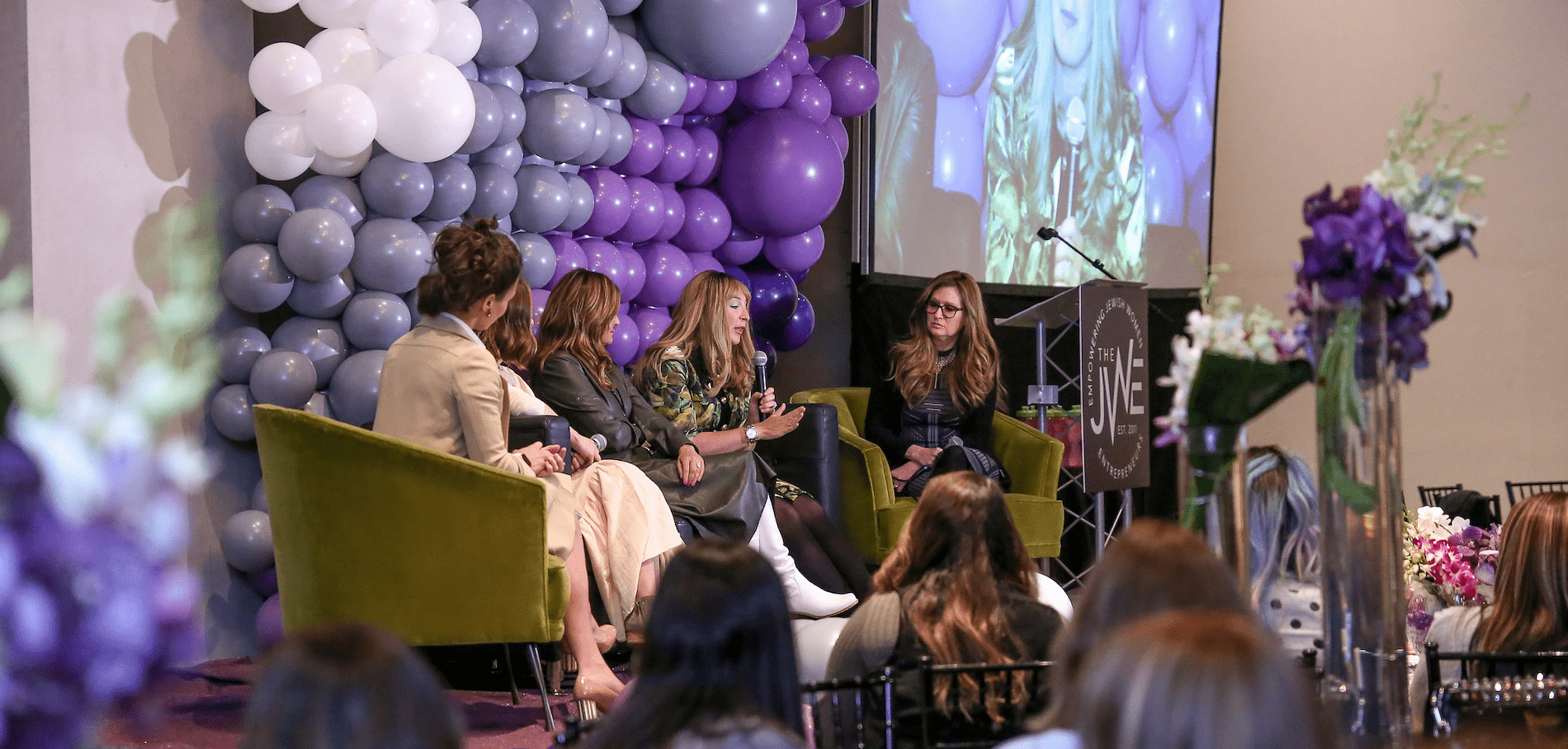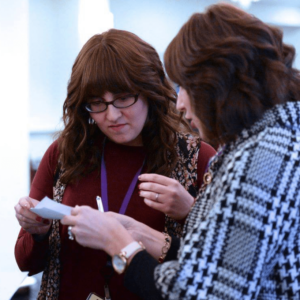
This Organization Empowers Orthodox Jewish Female Entrepreneurs
 Though many people believe that Orthodox Jewish women aren’t allowed to work, the JWE (The Jewish Women Entrepreneur) works hard to change the lives of hundreds of frum businesswomen, to the tune of millions of dollars in sales. In 2011, Chaya Fishman, founded the organization to help women combat the prejudices against them and succeed.
Though many people believe that Orthodox Jewish women aren’t allowed to work, the JWE (The Jewish Women Entrepreneur) works hard to change the lives of hundreds of frum businesswomen, to the tune of millions of dollars in sales. In 2011, Chaya Fishman, founded the organization to help women combat the prejudices against them and succeed.
Fishman says, “Sometimes I get questions like ‘Are you the real Orthodox?’ and I say ‘Yeah my husband took my chains off so I could come to law school, but don’t worry, I’ll be back in three hours and I’ll get back to making my challah!’ After I joke, I try to give a thoughtful response. ‘I’m sorry, I don’t know where that perception comes from, but I’m happy to answer questions and I’d love to invite you to our home to see what our family is like. I’m still a mom first, and my family is most important to me, but I’m also a career woman and an Orthodox Jew. I’m a multi-dimensional person and my lifestyle enables me to have different parts of me and celebrate them all. That’s what being an Orthodox Jew means to me.”
Fishman grew up in the Bais Yaakov system and started the JWE while in law school and managing her family. “There are women who are making multiple millions of dollars of sales a year while keeping to their observance and our Jewish values.” Fishman started the organization, “because she felt that there weren’t enough women connecting and that there wasn’t enough education for [female] entrepreneurs.”
From there, the community grew. “Orthodox women in general, especially if they are entrepreneurs, are balancing a very different space than most other entrepreneurs. We have larger families, we have many opportunities to [entertain], between Shabbos and the Holidays. The work-life balance is a very unique situation for all of us.” When Fishman was in law school, she created a conference catered to them. The JWE community grew so quickly that Fishman needed help keeping up with the demands. “I don’t think anyone was prepared for that growth.” There are other entrepreneur conferences, but a very small fraction of women attend.
Abbey Wolin is the program coordinator for the JWE, but started out as a JWE participant. Wolin built a successful business in making hand-painted glassware and serve ware. Using social media to grow her business, she saw great results. “I went from [starting the business on my] dining room table, to a retail studio space, to five stores, to ten stores, to 98 locations all throughout the United States and Canada.”
Fishman introduced Wolin to the EPI (Emergency Parnassah Initiative), who sets up female entrepreneurs with interest-free loans. Wolin says, “The JWE Conference gives women entrepreneurs the opportunity to connect and to network with women that would not necessarily have the opportunity to do [otherwise].” From juice purveyors to furniture makers to tech gurus, the participants are all Orthodox Jewish women. “There are people I would never have had access to and there are people who are thanking me daily for their [contacts.]”
Wolin now teaches women how to do it successfully, based on her knowledge of her own mistakes. “I now have a serious amount of  information to help women start and grow their businesses.” Many women start their businesses based on their hobby, which becomes their “side hustle,” although this is not the recommended way of starting a business. “Entrepreneurship is glorified.” People are awed by the fact that they can make their own hours and take care of their kids. “It starts to overrun you if you’re not properly prepared for it.”
information to help women start and grow their businesses.” Many women start their businesses based on their hobby, which becomes their “side hustle,” although this is not the recommended way of starting a business. “Entrepreneurship is glorified.” People are awed by the fact that they can make their own hours and take care of their kids. “It starts to overrun you if you’re not properly prepared for it.”
Chagit Leviev, daughter of diamond and real estate mogul Lev Leviev, was last month’s conference’s keynote speaker. Toby Moskovitz, the owner of the Williamsburg Hotel, also spoke about the rejuvenation of Williamsburg. Panels included growing and scaling your business and observant women in unusual spaces. Millennial Furniture maker Chaya Krinsky, who now sells to Target, Wayfair and more spoke as well. The conference had 300 attendees, including 100 VIPS who had interaction with speakers and a networking after-party. “You start to create actual relationships that could really be something that changes your life forever.” Aside from the conference, there is a mentorship program, where all of the mentors must also be mentees within their industry. There are various webinars about how to self-fund your own business, and one on marketing too.
The best person to speak to JWE’s success is Wolin herself. “I would not be who I am, where I am…without [it.]” After she received a $25,000 interest-free loan, Wolin had created a studio and was selling to over 90 outlets. “My stores loved it, they could literally get whatever they wanted.” But they would all sell out immediately. Wolin could not keep up with the demand. On her Instagram, Wolin started a 90-day Business Challenge. “I figured out the recipe to marbelize glass. I ended up being able to teach my workers in my studio and I got out of the business.” She partnered with Waterdale, the #1 lucite company in the country, who does all the manufacturing and distributing for her while she does all the designing. “That’s what I love doing.” Now the royalties pay for themselves and in turn, she helps women grow their businesses.
“We’re working with over 1100 women…[of our mentees] over a third of them are in the tech industry.” Fishman knows that she could never have done it without support of her husband and their mentors. “There is so much crazy talent in the community.” Her husband’s rosh yeshiva told them, “You have to follow your heart and work in an area where you’re excited and you’re passionate.” There is tremendous support available for those who want it. “We [help you] have the access to achieve your dreams and your personal goal.”
If you found this content meaningful and want to help further our mission through our Keter, Makom, and Tikun branches, please consider becoming a Change Maker today.







